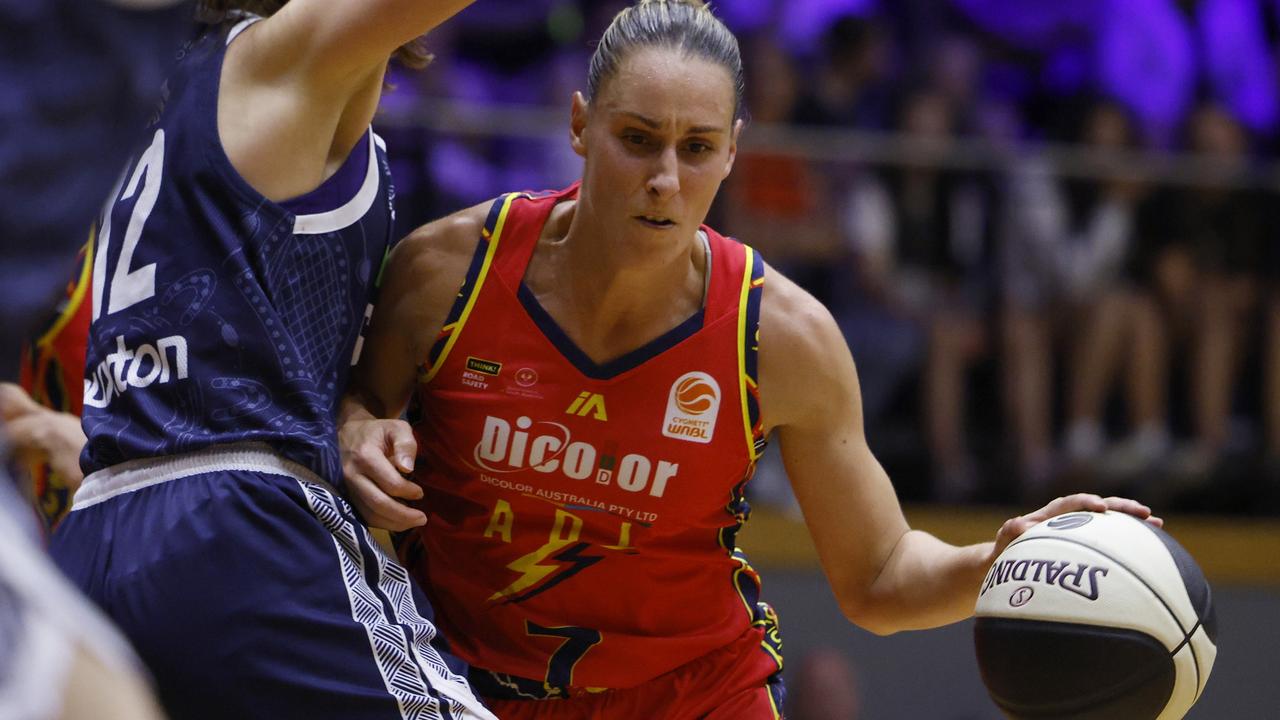Olympic swimmer Madi Wilson reveals her period stopped for almost 10 years
For nearly 10 years, Madi Wilson did not get her period. Now hoping to have a family, she is horrified at her previous lack of knowledge around her menstrual cycle.
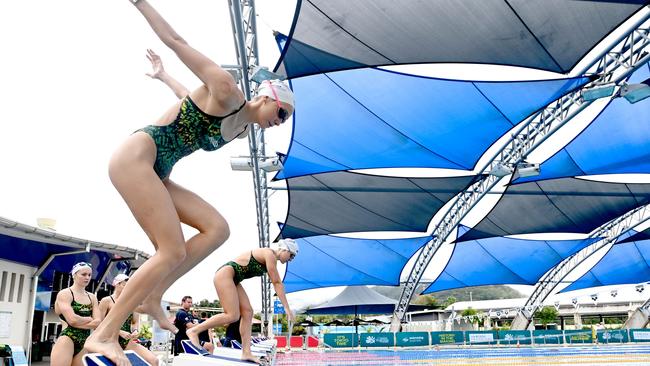
CODE Insight
Don't miss out on the headlines from CODE Insight. Followed categories will be added to My News.
Madi Wilson’s quest for Olympic glory took such a toll on her body she didn’t have a regular period for almost a decade.
Wilson, Olympic gold medallist, elite athlete, champion swimmer.
She presents as a picture of health but that hasn’t been the story for much of her high performance career.
For two full Olympic cycles, with only a small stage in between, Wilson did not have a period.
At all.
In hindsight, what she finds most worrying, is that she was not worried.
Now 28 and hoping to have a family in the next few years, Wilson is horrified at her previous lack of knowledge around her menstrual cycle, how it can affect performance and the questions that she should have - and wishes she would have - asked.
Now much more aware of her health - general and reproductive - the partner of South Australian cricketer Matt Short admits her patchy menstrual history and what it could mean for her fertility “scares the crap out of me”.
“We’re so used to in swimming having a niggle here or (there) and it’s like, well, just push through it and we’ll deal with it when the time comes,” said Wilson, who has battled health issues including a breast cancer scare in recent months.
“But this is bigger than that and it’s (about) life after sport. Swimming is ‘this big’ and the world and your life is so much bigger and I think it’s just so important for young girls to know that.”
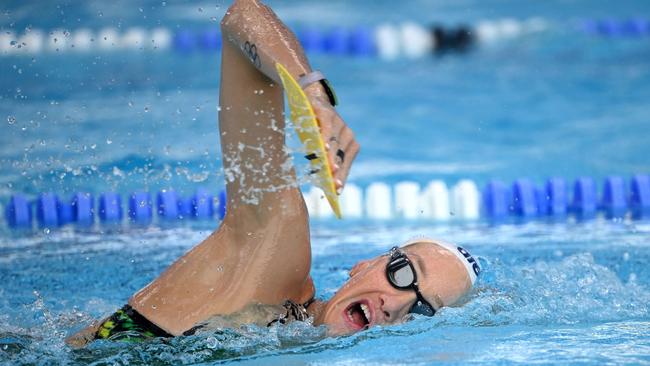
DON’T BELIEVE EVERYTHING YOU SEE
Wilson said the perception of elite athletes as super human pictures of health was often far from the truth.
“I think a lot of the population thinks, ‘Oh, they’re so healthy, they’re so fit, they must just have these amazing, beautiful, healthy lives and never get sick’,” she said.
“But it’s actually the complete opposite. We’re pushing our bodies day-in and day-out and there’s so many implications that that has on being a normal human being but specifically being a female.”
For Wilson, that meant the absence of a period for many years when she was in heavy training.
“The thing with the stress on the body is it just scares the period away. It just doesn’t come,” she said.
“Usually during an Olympic cycle, we don’t have that much downtime. It’s usually go, go, go.
“When you’re not racing, you’re training and when you’re not training and racing, you’re trying to enjoy life which is also go, go, go … and it also can be a stressful time as well.
“For me, it took a four-year preparation - an Olympic cycle - and I didn’t have my period at all.
“It wasn’t until I stopped (training) and then I got my period, and then the same thing happened for the next Olympic cycle, it just disappeared completely for the next cycle.”
Wilson thought little of it, just believing it was a natural stress response.
“(I thought), it’s not it’s not a problem at all, but it actually is a problem,” she said.
“It’s something that I probably should have figured out earlier on and I could have been a lot healthier than what I am now.”
ADVOCATING FOR CHANGE
Wilson will take part in the world championship trials in Melbourne next week, hoping to win a place on Australia’s team for the benchmark event in Fukuoka in July and is pushing for a spot at the Paris Games next year in what would be a third Olympics.
She now has a regular menstrual cycle and feels empowered to ask the questions that a once shy and intimidated version of herself could find no voice for.
Now an ambassador for Swimming Australia partner City Fertility, Wilson hopes to be a strong advocate for others in the sport, helping them find their voice, or at least the information they need to take charge of their own health.
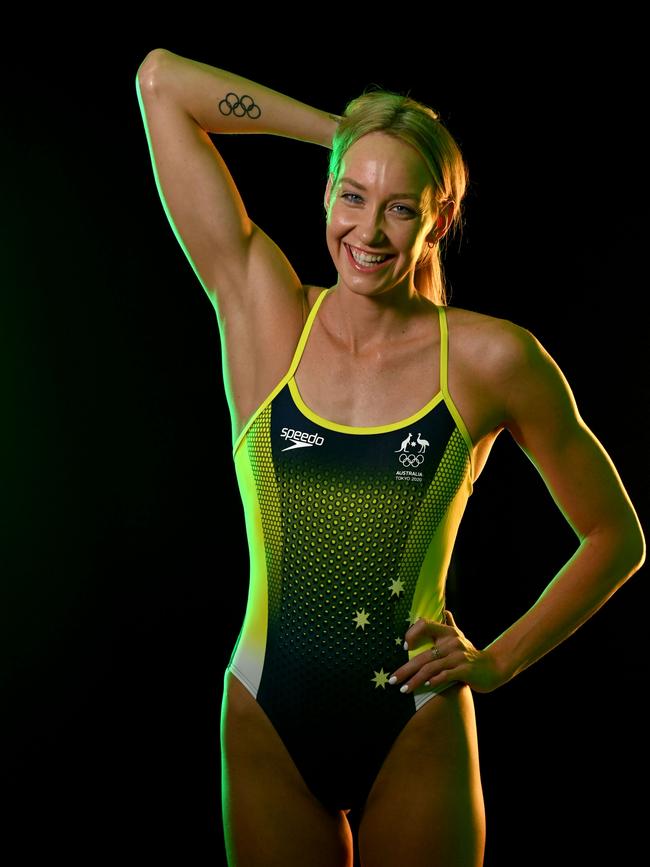
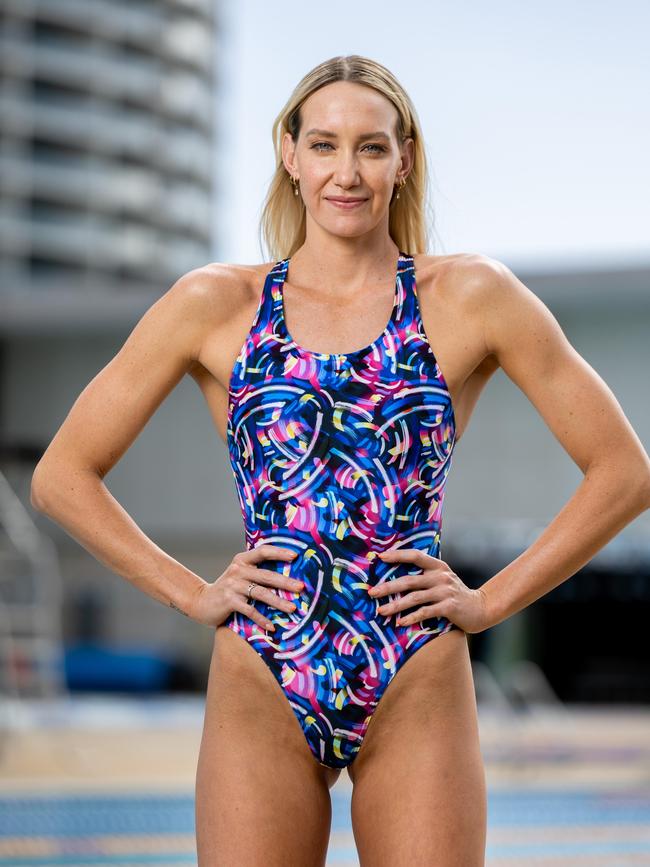
Swimming’s partnership with City Fertility is something that, at first glance, seems an unlikely marriage.
“I think my initial reaction was, why are we partnering with a fertility clinic?” Wilson said.
“It wasn’t until I spent some time learning a little bit more information around it that I was like, this actually totally makes sense and this is something that I want to be a part of.
“There’s just no information around menstrual cycles and the health impact that it has on athletes.
“We’re so under-researched as women in sport, so just having the research there and seeing how much it can actually help performance, knowing your cycle, knowing when to push, knowing when to pull back, it’s going to be something I think that’s so super exciting for Swimming Australia and for the women on our team.”
The governing body joined forces with women’s health experts City Fertility last year, combining the company’s knowledge of female physiology and fertility with the latest research in the groundbreaking Ignite Athlete Female Health and Wellbeing Program.
Thinking about starting a family was the catalyst for Wilson finding out more about her reproductive health.
BREAK THE TABOO
And she wants to normalise conversations about menstrual cycles and everything that goes with them to ensure the next generation of athletes doesn’t accept silence as the rule.
“Growing up in (swimming), it just wasn’t something that was spoken about,” Wilson said of the menstrual cycle and periods, despite it affecting about half of all squads.
“We’re such a sport that (has a tradition of), ‘you say, I do’ - and you don’t ask questions.”
Having had male coaches all her life, Wilson, like many in the sport, did not query what a “normal” period looked like, or how her menstrual cycle - or the lack of it - could affect her performance.
“I often get asked: ‘What would you tell your younger self?’ And it would be to ask questions,” Wilson said.
“I think the biggest thing is knowledge. If you feel that something’s not right, then all you can do is ask questions, all you can do is learn.
“But by having this website through City Fertility and the Ignite Athlete Program, I think already has so much information on there not just for female athletes, but for coaches and parents and everything.”
In a sport that has had a troubled history of dealing with athletes’ body issues - especially female athletes - information is invaluable.
“As a younger athlete, (talking about your period) is really taboo, which is so sad because it’s just part of life and you just don’t ask questions and you don’t talk about it,” Wilson said of the previously prevailing attitude.
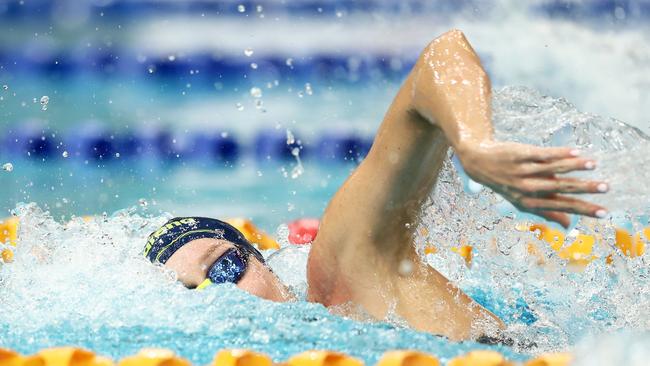
“And if you’re in pain, I guess you don’t really want to bring that up, which I think is just dreadful.
“Having this information available is going to be so helpful to athletes. Little girls who are going through this who are wondering, is this normal, is this not and they don’t want to speak up, at least (this resource) is there and they can know what’s right and what is absolutely not.”
It’s a tool Wilson hopes young swimmers will use, particularly if they’re feeling shy about talking to coaches or fellow athletes about their periods.
“I never asked questions and I was shy and I remember just feeling so alone and it’s not a nice place to be mentally at all,” she said.
“Feeling alone is probably one of the worst situations to be in and having the information there, knowing that it’s normal to talk about, it’s normal for athletes, hopefully can make girls and women feel more comfortable, feel more confident and feel more happy.”
Wilson also believes that there’s been a cultural shift within Swimming Australia, with a high performance environment that remains overwhelmingly dominated by males, more open to listening and learning.
“I definitely think it’s a lot better than what it was but I definitely think we have a long way to go,” she said.
“Until my generation move out of the sport and into positions of role models and we move into positions of power … that shift (isn’t) going to happen.
“I really do feel like it’s up to our generation to ... drill back into the sport, making sure that these young girls do feel comfortable and they do know what’s good and what’s not.”


